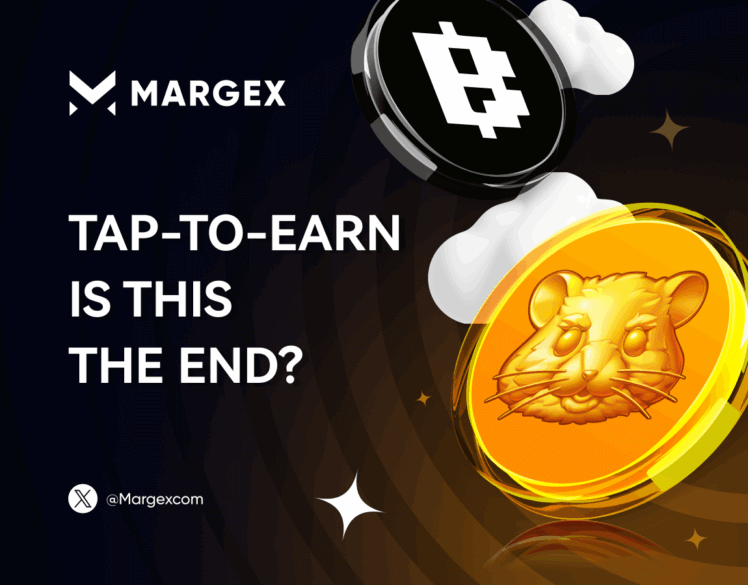Tap-to-Earn Crypto Games Frenzy In Harsh Decline as This Epoch Ends

Last year, the popularity of tap-to-earn crypto games was on a huge rise. They offered a simple and addictive pastime: all players needed to do was tap a smartphone screen repeatedly to earn local in-game coins or tokens. They were promised that those token rewards would eventually be converted to real crypto and would be listed on real crypto exchanges.
Those smartphone games exploded in popularity on such platforms as Telegram, adding to the wave of casual gaming and crypto enthusiasm. Besides, that seemed to be a really easy way to enter the crypto space. However, by now, this once very popular and mind-blowing trend seems to be losing steam quickly. Let’s explore this topic and see what is really happening here.
Yearning for tap-to-earn games collapses
Google Trends has confirmed what is already becoming evident to many crypto users – global interest while searching for “tap-to-earn” crashed by a massive 80% last year between June and December. Quite a huge drop for a frenzy that boasted millions of daily active users and even turned heads among serious crypto investors and traders.
These games have not gone into oblivion entirely. Quite a lot of Telegram users still play them and chase in-game tokens by tapping on their smartphone screens. However, savvy players admit that the feeling of innovation and novelty is fading away. For many, the token rewards have dried up, some do not think this tapping thing is worth their while anymore.
Look at one of the biggest names in that tap-to-earn space, Hamster Kombat. At the end of 2024 and as 2025 started, the number of active daily users plummeted. Particularly, this outflow was driven by what was believed to be an unfair distribution of token rewards. Besides, multiple delays in listing those tokens on real exchanges, the vague explanations of the plans from the developers, and other factors have cooled users’ expectations and hopes. Many afterwards admitted that they had wasted their time tapping in the Hamster Battle and failed to receive the expected rewards at all.
Once a phenomenon with a huge demand and popularity level, Hamster Kombat now looks almost completely deserted and forgotten. And there are other similar games – Notcoin, Catizen, TapSwap, and many others. Some games have managed to keep their users, some still seem to be blooming. But many have practically sunk without leaving any noticeable trace for the same reason – hopes for making crypto without much effort were shattered by shrinking payouts, high gas fees, withdrawal limits, etc, making players question the whole concept of these games and the actual utility of their tokens offered as rewards.
Blum co-founder arrested in Russia
The recent arrest of a similar Telegram crypto project co-founder, Blum, Vladimir Smerkis, has added to the skepticism surrounding this space. Vladimir is famous in the crypto sphere not only for helming Blum as a chief marketing officer but also as the former head of Binance in Russia.
Blum is a hybrid Telegram platform that combines features of both centralized and decentralized crypto exchanges for those yearning to explore the brave new Web3 world. Smerkis was taken into custody on charges of large-scale fraud, facing between two and twelve years of imprisonment.
Blum also offered users to do farming, complete various tasks, and invite friends to join the platform. All of this was rewarded with Blum points. These points are used within the app’s ecosystem, similarly to the tap-to-earn model used by Hamster Kombat.
Now, the arrest of Smerkis has cast a shadow over the entire tap-to-earn concept, and many users now prefer to distance themselves from such games and platforms. After his arrest, Smerkis resigned from his role in Blum and is no longer affiliated with the project in any way.
What’s next after tap-to-earn games?
This quick rise and the rapid fall of Hamster Kombat and other tap-to-earn games seem to signify a broader pattern – a lack of belief that hyped concepts can run in the long term as they are hardly able to sustain lasting interest, since they lack real utility and economic value.
Initially fun and fresh for users, all these games managed to offer was speculative tokenomics. Since more and more players finally had it brought home that they would hardly earn anything meaningful, and they certainly wouldn’t make a fortune, they decided to leave those tap games behind and move on to other promising projects.
Investors began to turn their attention to other rapidly evolving areas in the crypto space – DeFi farming protocols, projects with AI tools integrated in them, and layer-2 networks (including those on Bitcoin). Rather than offering tapping a screen for a few coins, these projects have strong use cases, stronger narratives, with more promising tech lying at the basis of them. Telegram now remains a popular messaging app rather than the centre of a crypto frenzy, at least for now, since it remains a promising platform with an enormous active user base.


